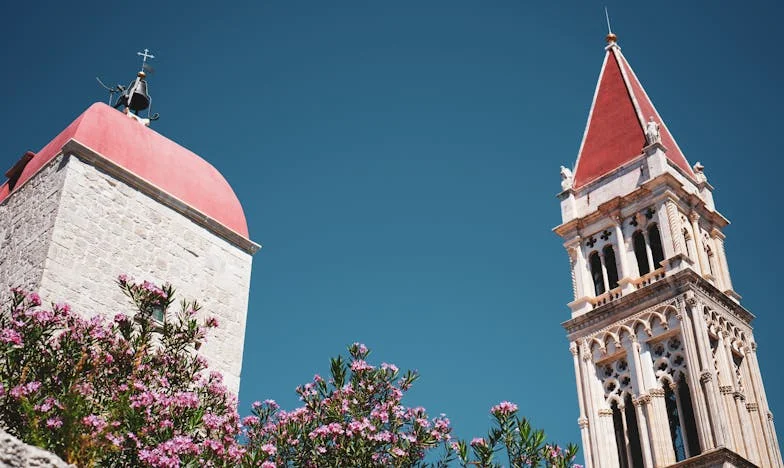Coming Home to a Stranger’s Doorstep
“Why are you back?” My brother Tyler’s voice cut through the thick Tennessee humidity like a knife. I stood on the front porch, the faded red bricks beneath my boots, suitcase in hand. The sun was setting behind the house, casting long shadows over the cracked driveway where we used to play basketball.
I swallowed, my heart pounding in my chest. “Dad asked me to come. He said he needed help.”
Tyler leaned against the doorframe, arms crossed, jaw tight. “We’ve been fine without you, Sarah.”
But I could see the dark circles under his eyes, the lines etched deeper since I’d left for college, five years ago. Mom had died that spring, and I’d run—first to New York, then to Chicago—anywhere but here. I’d told myself it was what she wanted, that I was chasing my dreams. But really, I was running from the silence that had filled this house after her last breath.
Dad’s voice floated from the living room, hoarse and uncertain. “Sarah, come on in. Please.”
I stepped inside, the familiar scent of old wood and lemon cleaner washing over me. The house looked smaller now—furniture faded, rugs worn thin, family photos dusty on the mantel. Dad sat in his recliner, oxygen tank hissing quietly beside him, cheeks sunken, eyes rimmed red. I hadn’t seen him since the hospital called three days ago. Congestive heart failure, they’d said. Not much time left.
“Hey, kiddo.” His voice trembled.
“Hey, Dad.” I tried to smile, but it came out crooked. I set my suitcase down and hugged him, careful of the tubes. For a moment, he squeezed me so tight I thought he’d never let go.
Tyler stalked past us into the kitchen. I heard the fridge door slam, the rattle of bottles. He was still angry. He had every right to be. He’d stayed behind, cared for Dad, picked up Mom’s prescriptions, watched the house crumble while I sent postcards from cities he’d never visit.
That first night, sleep wouldn’t come. I lay in my old room, staring at the glow-in-the-dark stars I’d stuck to the ceiling as a kid, listening to Dad’s labored breathing through the thin wall. I thought about the fight Tyler and I had the day I left.
“You always run away when things get hard,” he’d spat, tears in his eyes. “You never stay.”
I’d slammed the door and never looked back.
In the morning, I found Tyler at the kitchen table, staring into a mug of black coffee. The tension between us was thick enough to choke on.
“I’m not here to fight,” I said quietly.
He didn’t look up. “You gonna stick around this time, or just drop in for the funeral?”
My hands shook as I poured myself a cup. “I don’t know yet.”
He snorted. “Figures.”
Dad’s health declined faster than I’d expected. Each day, he shrank a little more. Some afternoons, he confused me with Mom, calling me ‘Annie’ in a voice so lost, it broke my heart. I found myself doing chores Tyler had handled for years—cooking, cleaning, managing Dad’s medicine. Tyler watched me with suspicion, as if waiting for me to run again.
One night, as I folded laundry, I found a bottle of whiskey tucked under Tyler’s bed. It was nearly empty.
I confronted him in the kitchen, holding the bottle between us. “You said you quit.”
He glared at me, eyes glassy. “You don’t get to judge me. You weren’t here.”
“I’m here now.” My voice cracked. “You can’t do this alone. Neither can I.”
He laughed bitterly. “You think coming home for a week makes up for five years?”
“No. But maybe it’s a start.”
He looked away, fists clenched. “You don’t know what it’s been like. Watching him fade. Every day. And you—off living your life like we never mattered.”
Guilt gnawed at me. “I’m sorry. I was scared. After Mom, I didn’t know how to stay.”
We sat in silence, the weight of years pressing down on us.
Dad’s condition worsened. Hospice came, set up a bed in the living room. Some nights, Tyler and I took turns sitting with him, holding his hand as he drifted in and out of consciousness. In those quiet hours, we started talking again—about childhood, about Mom, about everything we’d lost.
One morning, Tyler found me crying in the backyard. He sat beside me on the old porch swing, silent for a long time.
“I hated you for leaving,” he finally said. “But I get it now. Sometimes, it’s easier to run.”
I wiped my eyes. “I wish I’d been braver.”
He shrugged. “We all do what we can to survive.”
The night Dad died, Tyler and I sat together by his bed. We held his hands, told him we loved him, sang the old country songs he used to play on his guitar. When he was gone, it felt like the house exhaled, the tension easing just a little.
After the funeral, as we sorted through Dad’s things, Tyler handed me a faded photograph—Mom, Dad, Tyler, and me in the backyard, grinning at the camera.
“Think you’ll stay this time?” he asked, voice soft.
I looked at the empty house, the memories and regrets etched in every corner. “I don’t know. But I want to try.”
Tyler nodded. “That’s all any of us can do.”
Now, weeks later, I find myself standing on the porch again, watching the sun rise over the yard. The house still feels strange, but a little less so each day. Maybe coming home isn’t about finding what you lost, but about forgiving yourself for leaving in the first place.
I wonder—how many people are standing on a stranger’s doorstep, longing for home but afraid to cross the threshold? Would you walk in if you were me?
